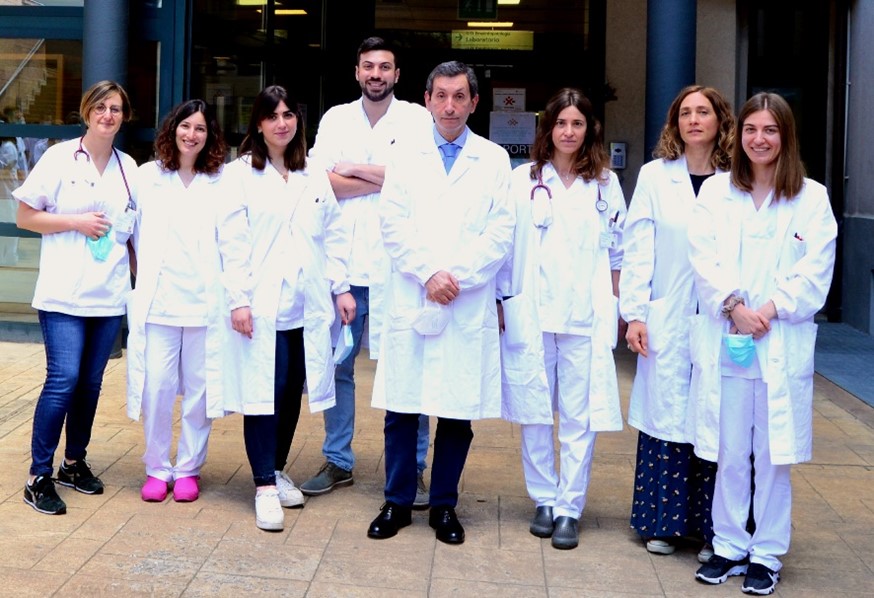Collaborators
The clinical-care and clinical research group is composed of:
Elena Zamagni, Associate Professor, Medical director, Head of the Multiple Myeloma Program
Paola Tacchetti, Medical Director
Lucia Pantani, Medical Director
Katia Mancuso, Research fellow
Serena Rocchi, PhD student
Ilaria Rizzello, PhD student
Alessio Fusco, Resident physician in Hematology
Gabriella De Cicco, Resident physician in Hematology
Margherita Ursi, Resident physician in Hematology
Emanuele Favero, Resident physician in Hematology
The “Molecular Biology laboratory” group is composed of:
Carolina Terragna, Senior biologist
Marina Martello, RTD
Enrica Borsi, RTD
Vincenza Solli, PhD student
Andrea Poletti, Research fellow
The "design and management of clinical studies" group is composed of:
Simona Barbato, Research fellow
Federica Pedali, Research fellow
Giorgia Lazzarini, Research fellow
Alessandra Scatà, Research fellow
Francesca Michela Trombetta, Research fellow
Giada Giulia Riso, Research fellow
Claudio Mostaccio, Research fellow
The Laboratory Group of Molecular Biology is involved in numerous collaborations, national and international, and actively participates in research projects funded by: AIRC - Call IG 2014 and Call IG 2018 (PI Prof. Michele Cavo), Ministry of Health - Ricerca Finalizzata 2016 (PI Prof. Michele Cavo), EMN Research Italy funding (PI Dr. Carolina Terragna).
